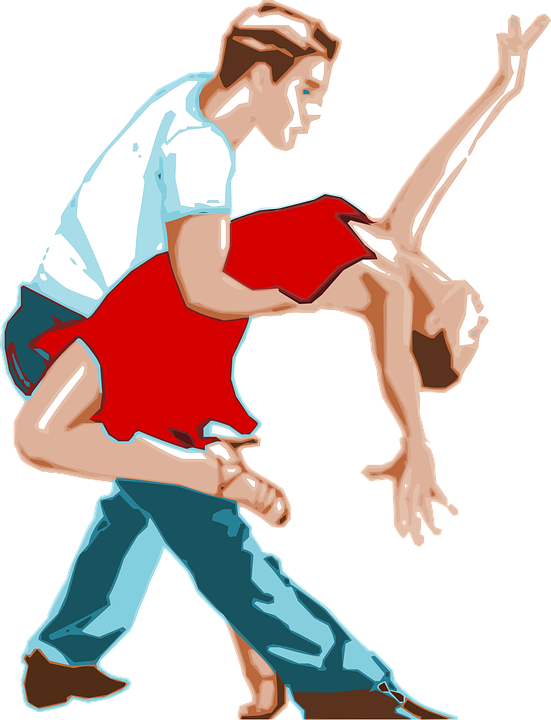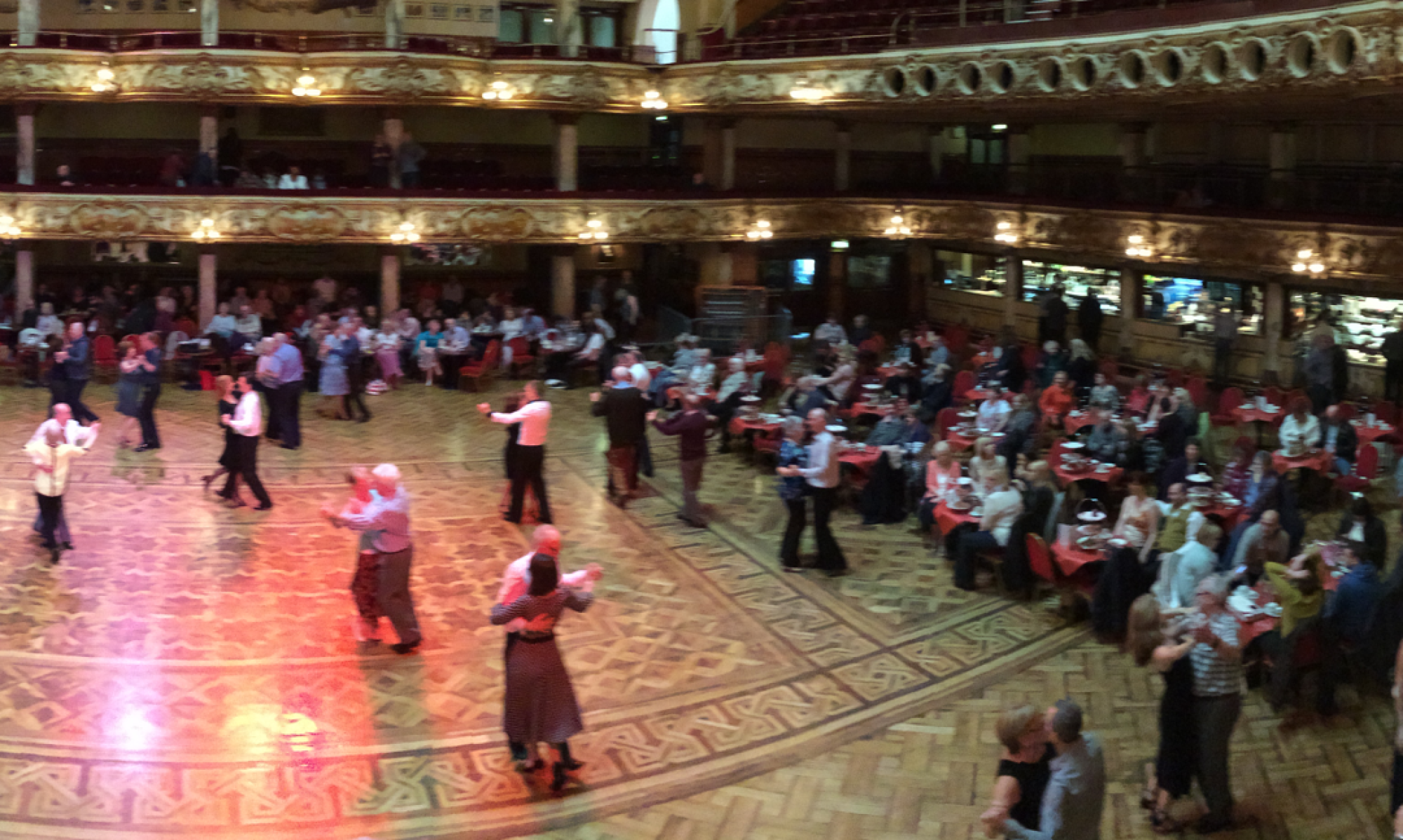Partner dancing is like going to a school where you have to take all the same classes, and your average score at the end determines whether you graduate. What if you had different interests? What if one of you learns faster than the other? Figuring out how to work together is the heart of partner dancing – the benefit of which, is that you will have new teamwork skills and a new romantic activity to bring you closer together. Here’s how to lay the foundation for fun and enjoyable partner dance lessons.
Continue reading “Partner Dance Lessons: How to Avoid A Divorce in 5 Easy Steps”
Nothing jars you out of you a wonderfully flowing dance movement faster than an unexpected bump from behind. It’s just one of the things a leader must watch out for on the social dance floor, along with stepped-on toes, elbows to the face, mule-kicks to the shin, and bruised egos. Yet most collisions on the dance floor can be avoided, with a little awareness and the right instincts. The following 6 techniques will teach you the unspoken rules of dance etiquette, so you can take care of yourself and your partner on a crowded dance floor.
Continue reading “Techniques to Avoid Collisions on the Dance Floor”

Last week we played with some simple exercises to get your hips moving as you travel in different directions. As these exercises start to sink in, you can apply some of the following techniques to smooth out the movement.
Continue reading “Cuban Motion (Latin hip action) Explained, Part Two”
what you do on the dance floor isn’t nearly as important as how you do it.
At the Latin clubs, capturing the sexy Latino rhythm means using Cuban motion. Lets be clear: both men and women use Cuban motion, although women tend to be more noticeable in their movement due to their wider hips and narrower waist. Here’s five exercises to get you started.
Continue reading “Cuban Motion (Latin hip action) Explained, Part One”
Last time, we looked at our tendency to multi-task in our dance practice, with sub-par results. We also started to examine how to counter this habit, and focus on improving one technique at a time. Let’s continue with that today.
Continue reading “Learn Ballroom Dancing Faster – Part Two”
Some of us are social dancers, looking to pick up a few new steps to surprise our partners on the dance floor. Others focus on the technical details that help them catch the judges eye at competitions. But no matter what you’re looking to get out of it, we all share one thing in common: We all want to learn ballroom dancing faster.
Most of us assume our learning speed is limited by our physical skill and experience. Yet, when we focus only on muscle repetitions and ignore the mental aspect of learning, we are essentially skiing on one foot. Half the equation is missing.
Continue reading “Learn Ballroom Dancing Faster – Part One”
we covered how to distinguish 5 major dance music styles from each other.
Today we’ll look at 5 more common Latin and ballroom dances: Foxtrot, samba, merengue, Viennese waltz, and east coast swing. Let’s get cracking.
Continue reading “What Ballroom Dance IS This Anyway??”
If you’re dancing for fun, the answer to ‘how often should I practice my dancing?’ is really up to you. But say you’re not satisfied with that. Say you want to get the most out of your lessons and not risk lagging behind in class. For my private-lesson students, I always advise practicing between lessons, so when they come back they are more comfortable with the material and we can move on to more exciting steps and technique.
Practicing on a busy schedule.
In this article, we look at the feasibility of practicing on a busy schedule, how long you should practice, and even how to practice more effectively.
You know what’s frustrating? Learning some great moves in a dance you love, then going out to a social dance and realizing you can’t tell what songs you can use them to.
Yet, despite how confusing it can be at the beginning, there ARE certain instruments or sound styles that traditional music of a dance genre use. Let’s look at a few of the most popular: salsa, cha cha, rumba, waltz, and tango.
Not all music is created equal – at least some of the time, finding the rhythm in ballroom dance music is tough. But if you’re new to the scene, what do we mean when we talk about rhythm anyways? And how can we get consistent enough to follow it, no matter the song?
Continue reading “Finding the Rhythm in Ballroom Dance Music”
